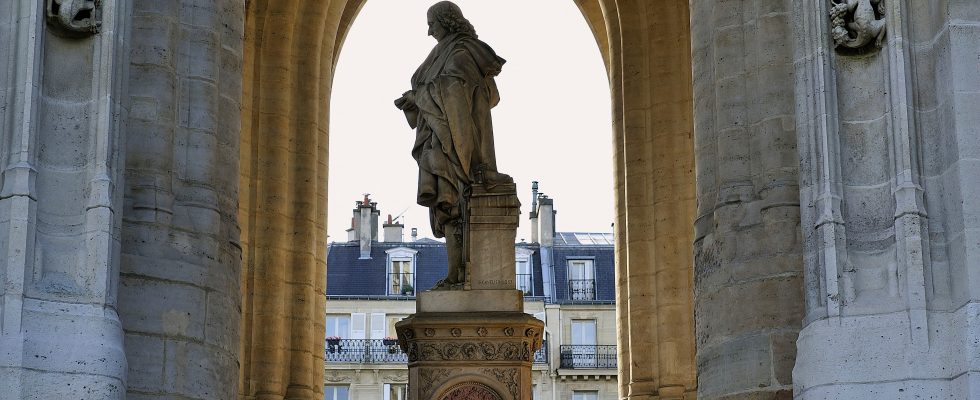Blaise Pascal (1623-1662) will be 400 years old on June 19. Anniversary which will undoubtedly be celebrated as it should be. Everyone knows that this “frightening genius” was a mathematician, inventor, philosopher, moralist and theologian, but we often forget to remember that he was also a leading physicist. He played a crucial role in the famous “quarrel of the void” which opposed the greatest minds in the 1640s – Galileo, Torricelli, Roberval, Descartes, Gassendi. Inventing all sorts of protocols, he demonstrated that the so-called “horror” that nature would have for a vacuum can be explained solely by the effects of the “weight of the air”, in other words by the existence of what will be called more later the “atmospheric pressure”.
His conclusion was chiselled like Praxiteles: “From the principle that nature has an invincible horror of emptiness, I passed on to this second, that she loathes it, but not in an invincible way, and from there I finally arrived to the belief of the third, that nature has no horror of a vacuum”. He was right: it is the atmospheric pressure – and not some repulsive passion that Nature would have – which, by the forces it engenders on any surface, prevents the easy creation of a vacuum within a pregnant. If a volume is hollowed out, the slightest orifice which forms in its surface allows the ambient air to enter it furiously and fill it immediately.
In the Thoughts, the same Blaise Pascal will explain that if man never ceases to entertain himself, it is out of horror… of the void! Isn’t it amazing that it was one and the same mind – his own – who argued on the one hand that Nature has no hatred for emptiness, on the other hand that we humans do not support the idea that it can colonize our existence? Combining these two ideas and pushing the metaphor, we could also have fun saying that the atmospheric pressure which prevents the vacuum from manifesting itself easily in the atmosphere is the physical equivalent of entertainment through which we keep the feeling of emptiness away from our lives. But were these two ideas just echoing in Pascal’s brain?
We can doubt it, especially if we examine the use that Blaise Pascal makes of the words “empty” and “nothingness” in his various writings. In particular in the correspondence he had with a Jesuit, Santa Claus (sic), author of a treatise entitled Full of emptiness. He claimed that the void could not exist, because if it existed, being endowed with a certain spatial extent, it would necessarily be filled with some matter. It seemed to him impossible to distinguish “dimensions from matter, nor immateriality from nothingness”.
Of the difference between emptiness and nothingness
In a letter dated October 29, 1647, Pascal answered him: “If we ask those who think like you to show us this matter, they answer that it is not visible; if we ask that it makes some sound, they say it cannot be heard, and so with all the other senses; and they think they have done a great deal, when they have caught others in the impotence of showing that it is not, by depriving themselves of all power to show them that it is.” And he concluded his missive with these words: “There is as much difference between nothingness and empty space, as between empty space and the material body; and thus empty space holds the middle between matter and nothingness. .”
The void was therefore for Pascal a space which differs from nothingness by its spatial extension and which stands out from matter by offering no resistance to movement: it remains somewhere between these two extremes, without being confused with one or the other. The Pascalian void (just like man in nature!) was in short the lair of an in-between. But later, in the Thoughts, Pascal will write that the man who experiences boredom “feels his nothingness, his abandonment, his inadequacy, his dependence, his helplessness, his emptiness. Immediately, he will come out of the depths of his soul boredom, darkness , sadness, grief, spite, despair”.
He would therefore no longer make a clear distinction between emptiness and nothingness, which he had taken care to oppose to each other in his writings as a physicist. Was it negligence on his part? Or did he want to mark the spirits more by using the word “nothing”, even more terrifying than the word “empty”?
* Etienne Klein is a physicist, research director at the CEA and philosopher of science
